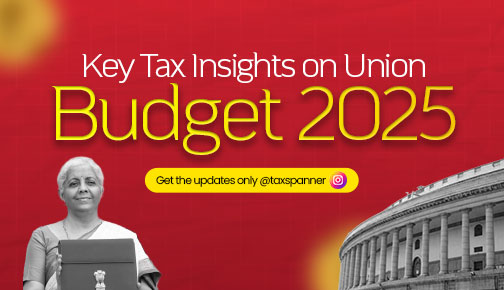Think You Don’t Need to File ITR? Think Again!
Do you think that just because your employer has deducted TDS, you don’t need to file your Income Tax Return (ITR)?
You’re not alone. Thousands of salaried individuals skip filing their ITR every year under the same impression — and it could cost them penalties, notices, and missed financial opportunities.
In this blog, we’ll explain why filing an ITR is not optional, even when there is no additional tax payable — and how it can benefit you in more ways than you might think.
Is ITR Filing Mandatory for You?
Yes — For FY 2024–25 (AY 2025–26), filing ITR is mandatory, if your gross total income before claiming deductions (like under Section 80C) is more than ₹3 lakhs (under New tax Regime, & ₹2.5 lakhs (under Old tax Regime).
Example 1 – Rina:
Rina earns ₹6,00,000 salary in FY 2024–25 and chooses the New Tax Regime. Since her taxable income (post rebate) results in zero tax liability, she assumes there’s no need to file ITR.
Reality: Filing is still mandatory, as her gross income exceeds ₹3,00,000.
Non filing can lead to a ₹1,000 late fee (if total income < ₹5L) and even scrutiny notices.
Example 2 – Amit:
Amit earns ₹10,00,000 salary in FY 2024-25 and opts for the new regime. With no deductions or exemptions claimed, he has no refund and no additional tax.
The employer deducts TDS correctly — so he believes his tax duty is done
Wrong!
Since his income exceeds ₹3 lakhs, he must file an ITR.
Failure to do so could attract a ₹5,000 penalty and possible non-compliance flags.
What Happens If You Don’t File Your ITR?
Filing your ITR is a legal obligation under Section 139(1)(b) of the Income Tax Act. Not complying with this provision can result in:
- Late Filing Fee (Section 234F)
- ₹5,000 if total income exceeds ₹5 lakhs
- ₹1,000 if income is below ₹5 lakhs
2. Penalty for Under-reporting (Section 270A)
- 50% of tax payable on under-reported income
- 200% if misreporting is detected
3. Notice under Section 148
If the IT Department finds discrepancies or income not reported (like FD interest), they can reopen your case for scrutiny.
Even If You Have No Extra Tax Payable — You Must File ITR
It’s not about how much tax you owe — it’s about disclosing your income.
Example:
- Arjun earns ₹4,20,000
- Claims ₹1.5L deduction under 80C
- Net taxable income: ₹2.7L — no tax due
Still required to file?
Yes — because income before deduction is above ₹3L.
Why Filing ITR Is Financially Smart
Beyond compliance, your ITR is a powerful financial document. Here's how it helps:
🔹 Loan or Visa Applications
Banks, embassies, and lenders ask for ITR copies to verify income authenticity.
🔹 Proof of Income
ITR is an accepted income proof for buying high-value insurance, credit cards, or applying for tenders.
🔹 Claiming Refunds
If excess TDS was deducted, filing ITR is the only way to get your money back. For example, if a person earns interest on Fixed Deposits, TDS at 10% is deducted, even if their total income is below ₹3 lakh. In such cases, the deducted tax can only be claimed as a refund by filing the ITR within the prescribed due date.
🔹 Carry Forward Losses
Capital or business losses can only be carried forward if you file your return on time.
Why Employers Must Educate & Support Employees
With growing focus on employee wellness, organizations must treat tax compliance as a shared responsibility. By guiding employees and offering professional support (like bulk ITR services), employers can:
- Reduce financial stress
- Improve compliance rates
- Prevent mis-selling of tax-saving products
- Enable employees to take informed financial decisions
How TaxSpanner Can Help
As India’s most trusted tax filing platform, TaxSpanner offers:
- ITR Filing for all types of income: Salary, house property, capital gains, business, foreign income
- Expert tax support all year round
- Bulk pricing and corporate partnerships
- Guided digital-first filing process
- Tax planning & optimization services
With over 2 million users and 17+ years of tax leadership, TaxSpanner is here to simplify your tax journey.
Bottom Line
Whether you're earning ₹3 lakhs or ₹30 lakhs, filing your ITR is mandatory if your gross income crosses the basic exemption limit. It's not just a formality — it’s your proof of being a compliant, financially responsible citizen.
Avoid penalties, stay eligible for financial benefits, and stay stress-free.
Make tax filing a part of your yearly financial checklist — not an afterthought.
Need help filing your return or planning your taxes?
Talk to a TaxSpanner expert or ask your employer about bulk ITR support plans today.
Explore TaxSpanner's wide range of calculators for your tax planning and calculations!
View Tools & Calculators



